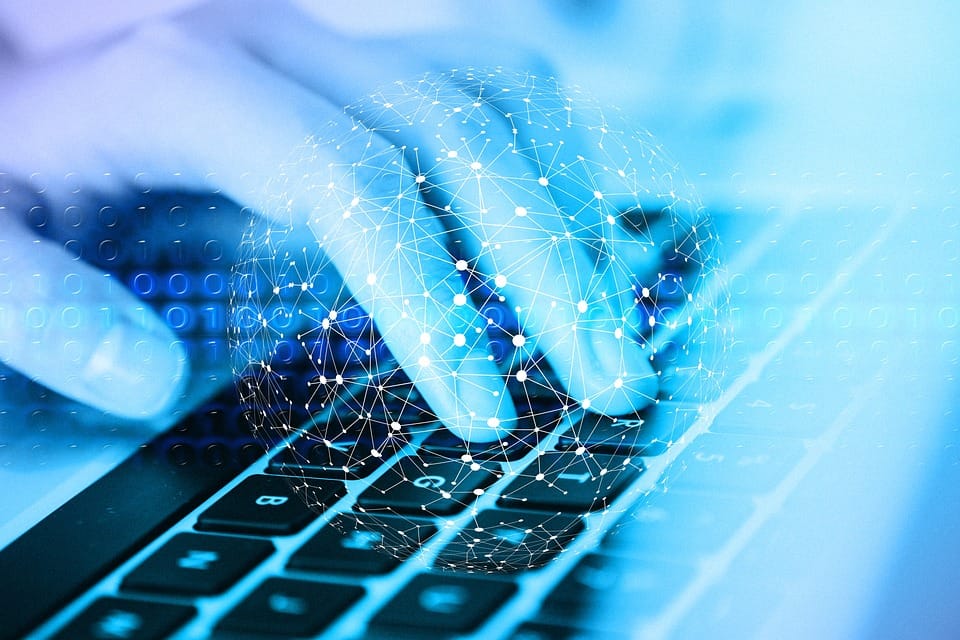Blockchain 101: A Beginner’s Guide to Distributed Ledgers
In recent years, the term "blockchain" has become a hot topic in the technology world. Many people have heard about it, but not everyone knows what it is, how it works, and why it’s so important. In this article, we’ll dive deep into the world of blockchain and explain it in a way that’s easy to understand, even for those who are new to the concept.
What is Blockchain?
A blockchain is a distributed digital ledger that records transactions across a network of computers. It’s the foundation of a new generation of the internet, known as the "Internet of Things" (IoT). This technology is revolutionizing the way we store and share data, and it’s changing the way we do business.
Imagine a book where every transaction is recorded in a block, linked to a previous block, and secured by complex cryptography. This book is not stored in one central location, but is instead shared across a network of computers. This is the concept of a blockchain.
How Does It Work?
A blockchain is created when a group of people come together to create a network of computers. Each computer is called a "node," and each node has a copy of the entire blockchain. When a new transaction is made, it’s broadcast to the entire network, and each node verifies the transaction using complex algorithms and cryptography.
Once the transaction is verified, it’s combined with other transactions in a batch called a "block." Each block is given a unique code, called a "hash," which connects it to the previous block in the chain. This creates a permanent and unalterable record of all transactions.
The Key Components of a Blockchain:
- Nodes: These are the computers that make up the network, each with a copy of the entire blockchain.
- Transactions: These are the individual events recordable on the blockchain, such as a transfer of value or information.
- Blocks: These are the groups of transactions that make up the blockchain, each linked together by a unique hash.
- Hash: This is a unique code given to each block, connecting it to the previous block and making it difficult to alter.
- Consensus: This is the process by which nodes agree on the state of the blockchain, ensuring that all nodes have the same version of the blockchain.
Benefits of Blockchain:
- Security: The combination of complex cryptography and the decentralized nature of the network makes it extremely difficult for hackers to alter the records.
- Transparency: All transactions are recorded publicly and transparently, making it easy to track and verify.
- Immutable: The blockchain is tamper-proof, making it impossible to alter or delete transactions.
- Consensus: All nodes must agree on the state of the blockchain, ensuring that all transactions are valid and correct.
How Blockchain is Used:
- Currencies: Blockchain technology is the backbone of cryptocurrencies like Bitcoin and Ethereum, allowing for secure and transparent transactions.
- Supply Chain Management: Blockchain can be used to track products and inventory across a supply chain, ensuring transparency and security.
- Smart Contracts: Blockchain can be used to automate the execution of contracts, eliminating the need for intermediaries.
- Identity Verification: Blockchain can be used to create secure and decentralized identity verification systems.
Conclusion:
In conclusion, blockchain is a distributed digital ledger that’s revolutionizing the way we store and share data. Its unique combination of security, transparency, and immutability makes it an attractive solution for a wide range of industries. Whether you’re new to blockchain or an expert, understanding the basics of how it works is crucial to unlocking its full potential.
Frequently Asked Questions (FAQs)
Q: Is blockchain the same as cryptocurrency?
A: No, blockchain is the technology that underlies many cryptocurrencies, but not all cryptocurrencies use blockchain.
Q: Is blockchain slow?
A: Depending on the implementation, blockchain can be slow or fast. Some blockchains are optimized for speed, while others prioritize security.
Q: Is blockchain secure?
A: Yes, the combination of complex cryptography and the decentralized nature of the network makes it extremely difficult for hackers to alter the records.
Q: Can I use blockchain for personal use?
A: Yes, many blockchain-based applications are designed for personal use, such as secure personal identity verification and decentralized storage.
Q: Is blockchain the future of technology?
A: While it’s difficult to predict the future of technology, blockchain has the potential to be a significant part of it, revolutionizing the way we store and share data.
Q: Can I invest in blockchain?
A: Yes, many cryptocurrencies and blockchain-based startups are available for investment. However, be sure to do your research and understand the risks involved.
Q: Is blockchain only for tech-savvy people?
A: No, anyone can understand the basics of blockchain and its applications, even if you’re not tech-savvy.

Leave a Reply